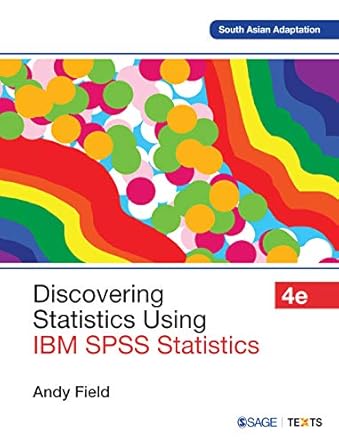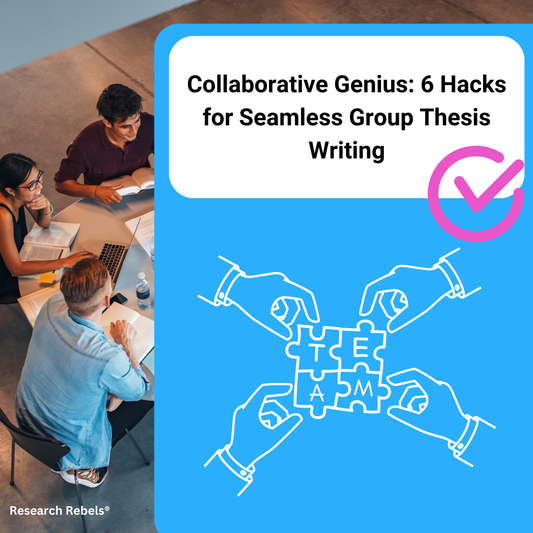Unlocking the Secrets of Statistical Analysis: A Review of 'Introduction to Mediation, Moderation, and Conditional Process Analysis'

In the realm of social sciences, understanding the intricate relationships between variables is crucial. Andrew F. Hayes' book, Introduction to Mediation, Moderation, and Conditional Process Analysis, provides a comprehensive guide to these complex statistical methods. This second edition is a must-have for anyone delving into regression-based approaches in their research.
Key Takeaways
- Comprehensive Coverage: The book covers both basic and advanced topics in mediation and moderation analysis.
- User-Friendly: Written in a conversational tone, it is accessible to both intermediate and advanced users.
- Practical Examples: Includes numerous examples that make complex concepts easier to understand.
- Essential for Researchers: A valuable resource for graduate students and applied researchers in social sciences.
Comprehensive Coverage
One of the standout features of this book is its thorough coverage of both mediation and moderation analysis. Hayes does an excellent job of explaining these concepts in a way that is easy to understand. The book is structured to build on each concept progressively, making it easier for readers to follow along and grasp the material.
User-Friendly Approach
Hayes' writing style is both engaging and informative. He anticipates the questions that readers might have and addresses them in a clear and concise manner. This makes the book not only a great learning tool but also an enjoyable read. The conversational tone helps demystify complex statistical methods, making them accessible to a broader audience.
Practical Examples
The book is filled with practical examples that illustrate the concepts being discussed. These examples are drawn from real-world research, making them highly relevant and useful. The step-by-step approach in these examples helps readers understand how to apply the methods in their own research.
Essential for Researchers
For graduate students and applied researchers in social sciences, this book is an invaluable resource. It provides a solid foundation in mediation and moderation analysis, which are essential tools for understanding causal mechanisms in research. The book is also a great reference for those who are already familiar with these concepts but need a refresher or more advanced insights.
Conclusion
In summary, Introduction to Mediation, Moderation, and Conditional Process Analysis by Andrew F. Hayes is a comprehensive, user-friendly, and practical guide to understanding complex statistical methods. Whether you are a graduate student, an applied researcher, or someone looking to deepen your understanding of mediation and moderation analysis, this book is a valuable addition to your library.
Unlocking the Secrets of Statistical Analysis: A Review of 'Introduction to Mediation, Moderation, and Conditional Process Analysis'

In the realm of social sciences, understanding the intricate relationships between variables is crucial. Andrew F. Hayes' book, Introduction to Mediation, Moderation, and Conditional Process Analysis, provides a comprehensive guide to these complex statistical methods. This second edition is a must-have for anyone delving into regression-based approaches in their research.
Key Takeaways
- Comprehensive Coverage: The book covers both basic and advanced topics in mediation and moderation analysis.
- User-Friendly: Written in a conversational tone, it is accessible to both intermediate and advanced users.
- Practical Examples: Includes numerous examples that make complex concepts easier to understand.
- Essential for Researchers: A valuable resource for graduate students and applied researchers in social sciences.
Comprehensive Coverage
One of the standout features of this book is its thorough coverage of both mediation and moderation analysis. Hayes does an excellent job of explaining these concepts in a way that is easy to understand. The book is structured to build on each concept progressively, making it easier for readers to follow along and grasp the material.
User-Friendly Approach
Hayes' writing style is both engaging and informative. He anticipates the questions that readers might have and addresses them in a clear and concise manner. This makes the book not only a great learning tool but also an enjoyable read. The conversational tone helps demystify complex statistical methods, making them accessible to a broader audience.
Practical Examples
The book is filled with practical examples that illustrate the concepts being discussed. These examples are drawn from real-world research, making them highly relevant and useful. The step-by-step approach in these examples helps readers understand how to apply the methods in their own research.
Essential for Researchers
For graduate students and applied researchers in social sciences, this book is an invaluable resource. It provides a solid foundation in mediation and moderation analysis, which are essential tools for understanding causal mechanisms in research. The book is also a great reference for those who are already familiar with these concepts but need a refresher or more advanced insights.
Conclusion
In summary, Introduction to Mediation, Moderation, and Conditional Process Analysis by Andrew F. Hayes is a comprehensive, user-friendly, and practical guide to understanding complex statistical methods. Whether you are a graduate student, an applied researcher, or someone looking to deepen your understanding of mediation and moderation analysis, this book is a valuable addition to your library.
Unlocking the Secrets of Statistical Analysis: A Review of 'Introduction to Mediation, Moderation, and Conditional Process Analysis'

In the realm of social sciences, understanding the intricate relationships between variables is crucial. Andrew F. Hayes' book, Introduction to Mediation, Moderation, and Conditional Process Analysis, provides a comprehensive guide to these complex statistical methods. This second edition is a must-have for anyone delving into regression-based approaches in their research.
Key Takeaways
- Comprehensive Coverage: The book covers both basic and advanced topics in mediation and moderation analysis.
- User-Friendly: Written in a conversational tone, it is accessible to both intermediate and advanced users.
- Practical Examples: Includes numerous examples that make complex concepts easier to understand.
- Essential for Researchers: A valuable resource for graduate students and applied researchers in social sciences.
Comprehensive Coverage
One of the standout features of this book is its thorough coverage of both mediation and moderation analysis. Hayes does an excellent job of explaining these concepts in a way that is easy to understand. The book is structured to build on each concept progressively, making it easier for readers to follow along and grasp the material.
User-Friendly Approach
Hayes' writing style is both engaging and informative. He anticipates the questions that readers might have and addresses them in a clear and concise manner. This makes the book not only a great learning tool but also an enjoyable read. The conversational tone helps demystify complex statistical methods, making them accessible to a broader audience.
Practical Examples
The book is filled with practical examples that illustrate the concepts being discussed. These examples are drawn from real-world research, making them highly relevant and useful. The step-by-step approach in these examples helps readers understand how to apply the methods in their own research.
Essential for Researchers
For graduate students and applied researchers in social sciences, this book is an invaluable resource. It provides a solid foundation in mediation and moderation analysis, which are essential tools for understanding causal mechanisms in research. The book is also a great reference for those who are already familiar with these concepts but need a refresher or more advanced insights.
Conclusion
In summary, Introduction to Mediation, Moderation, and Conditional Process Analysis by Andrew F. Hayes is a comprehensive, user-friendly, and practical guide to understanding complex statistical methods. Whether you are a graduate student, an applied researcher, or someone looking to deepen your understanding of mediation and moderation analysis, this book is a valuable addition to your library.
















